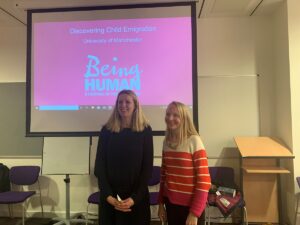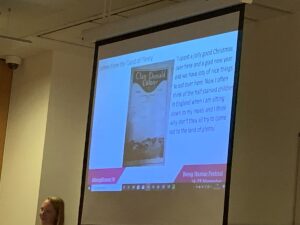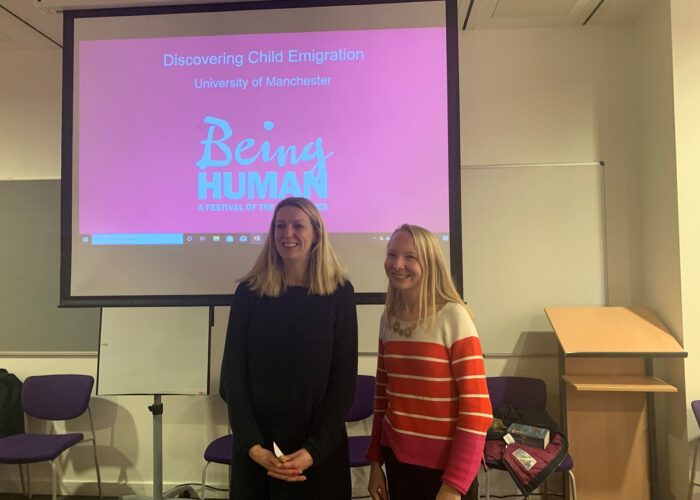
The moving tales of orphans who were shipped overseas from Liverpool to Canada were brought to life in an interesting talk.
The Being Human festival 2019 came to a close this weekend, as it held its last event,‘Discovering Emigrant Children’, at Liverpool Central Library.
The event is part of the national festival of humanities, which took place between November 14-23.
It offered guests the chance to learn about orphans who were emigrated from Liverpool and the North West to Canada as part of a scheme to deal with ‘problem’ children.
It focused on research from Dr Charlotte Wildman and Dr Eloise Moss from the University of Manchester, who have been looking into the process of emigration in Liverpool, with help from the archives in the Central Library and in Canada.
One of the key sources studied to help the process of discovering how they felt during their time in Canada were letters from the children themselves.
YouTube: Megan Stringer
Dr Eloise Moss, lecturer of British Modern History, told JMU Journalism: “We have this huge period of emigration of children from Britain to Canada during the period of 1860 to 1939; an estimated 100,000 children were emigrated out of this region through the Port of Liverpool to Canada.
“The majority of them were impoverished children. They’ve been emigrated out of institutions designed to deal with welfare in the city. What we want to understand is why emigration was seen as the solution to that problem, who facilitated it, and what were some of the financial motivations for emigration.
“Was it really seen as an opportunity for these children to make a better life for themselves?”

Attending the event were ancestors of some of the children sent to Canada, who were trying to trace what happened to their relatives.
The lecturer said: “One of the wonderful things about hosting events is that you get to meet people who are descendants and have done a lot of this work. Family historians help us professional historians so much by all the work that they do, which is what keeps archives going in many respects.”
Dr Moss stated that they hope to produce a book in the near future of the research they have found, but emphasised that they do care very strongly about helping people understand their family stories.
“History matters to everyone, so its very much a two-way street,” she added.

